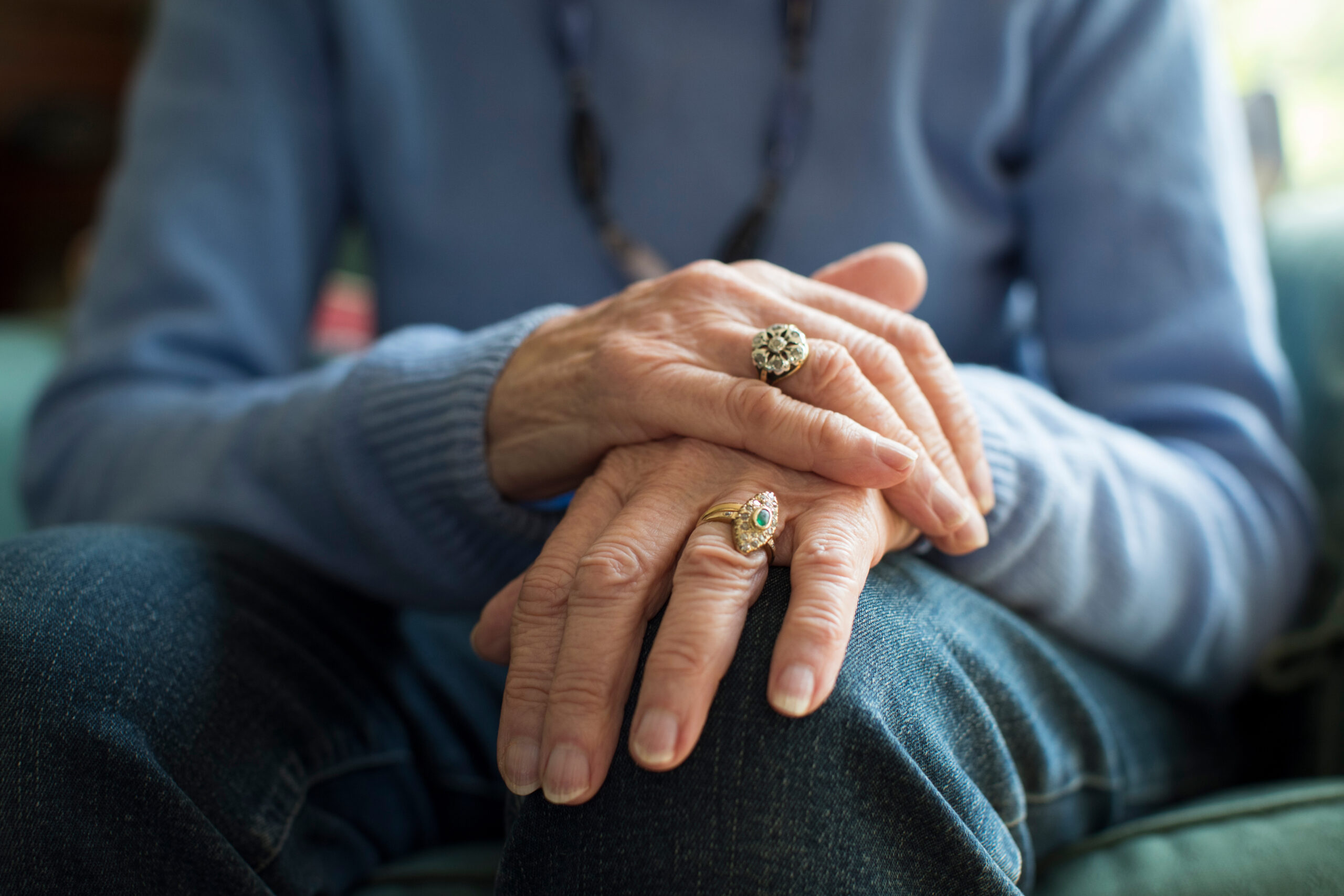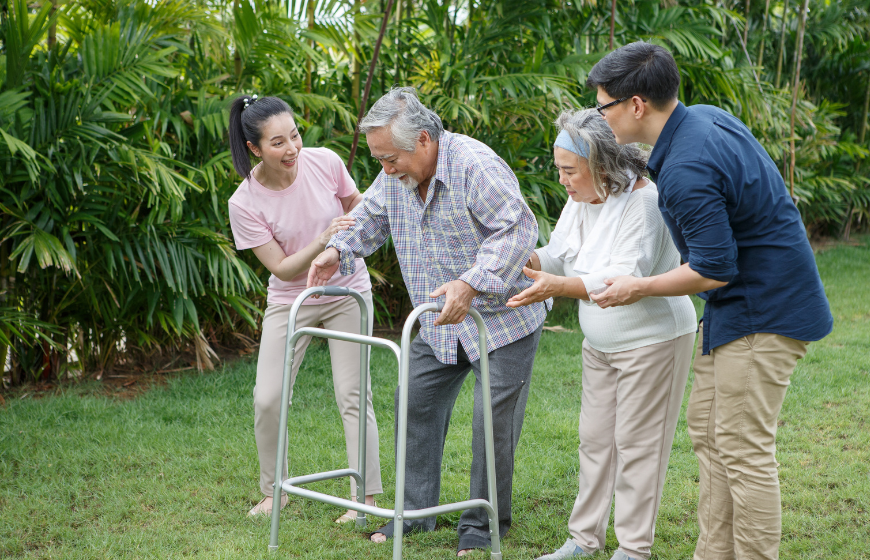At A Glance
- Understanding Conditions: Caring for a loved one who lives with Parkinson’s disease or essential tremor means understanding their distinct challenges and supporting their medical needs in ways that respect their dignity, daily routines, and emotional well-being.
- Choosing the Right Service: Care options can include a private duty nurse and a home nurse providing personalized care.
Understanding What Your Loved One Needs
Parkinson’s Disease
Parkinson’s affects more than just movement—it can touch every part of your loved one’s day. From slowed mobility and stiffness to speech challenges and changes in cognition, the impact on their life can be profound.
Having the right support can make all the difference. That includes care to ensure a consistent routine, medication timing, and emotional reassurance.
Essential Tremor
Though different from Parkinson’s, essential tremor can still deeply impact your loved one’s day-to-day life. Shaking hands or a quivering voice can make eating, dressing, and writing challenging. Care should focus on encouragement, accommodating tools, and support with daily tasks.
Caring for Parkinson’s Disease and Essential Tremor
Parkinson’s Disease
Your loved one may often require assistance with:
- Slow Movements: Everyday tasks may take longer, requiring patience and support from caregivers.
- Muscle Stiffness: Stiffness can make movement painful and difficult, necessitating physical therapy and mobility aids.
- Speech Difficulties: Communication challenges may benefit from speech therapy and alternative communication methods.
- Medication Routine: Sticking to a consistent medication schedule can be transformative, as Parkinson’s medications must be taken at precise times to keep symptoms under control.
Essential Tremor
Your loved one may often require assistance with:
- Involuntary Shaking: Tremors can make fine motor tasks like writing or using utensils difficult.
- Difficulty with Daily Tasks: Activities such as dressing or eating can be challenging, without caregiver support.
- Medication Management: Reducing tremors with properly scheduled medications can be effective.
What Kind of Home Care is Right?
Private Duty Nurses
For your loved one who needs round-the-clock care and support—especially when they reach advanced stages of Parkinson’s or when tremors severely impact their independence—a private duty nurse can offer specialized, one-on-one care at home. These highly skilled professionals can handle medications, emergencies, mobility support, complex needs, and more.
Home Health Aides
If your loved one is mostly independent but could use a helping hand with daily tasks such as remembering when to take medications, completing rehab exercises, or doing personal care, home health aide services can be a good fit.
What to Look for in a Home Care Provider?
Qualifications and Experience
Choosing at-home caregivers with specialized training means thinking beyond tasks and hours—it’s about fostering trust and providing compassion and skill. Here are 4 things to look for:
- Specialized Training: Does your loved one’s caregiver have the specialized training and experience needed to thoroughly manage Parkinson’s or essential tremor?
- Personalized Care Plans: What services are offered in care plans that tailor to their specific needs? How can they be adjusted as those needs evolve?
- 24/7 Availability: Is immediate support available for emergencies or sudden health changes?
- Connection and Fit: How does your loved one feel about the provider? Is there a warm connection between the two?
Flexible Care Plans
Your loved one’s care provider should be able to offer plans that can be adjusted as care needs change. This is crucial for their approach to day-to-day care as well as their approach to the progression of Parkinson’s disease or essential tremor and to how they incorporate rehabilitation exercises and emotional support.
Why Families Trust Alliance Homecare?
Alliance Homecare is dedicated to providing exceptional care for patients with Parkinson’s disease and essential tremor. We’re more than just a provider—we’re a partner.
Here’s how we help:
- Expert Care Team: Our caregivers, from home health aides to private duty nurses, receive in-depth specialized training in Parkinson’s and essential tremor care through our partnership with the Parkinson’s Foundation.
- Customized Care Plans: We build plans around your loved one’s unique needs and ensure regular updates to address changes. This includes medication schedules, meals, movement, and mental well-being.
FAQs and Practical Tips
1. How do I know my loved one’s caregiver is qualified?
Verify training from organizations like the Parkinson’s Foundation and inquire about the caregiver’s experience in managing Parkinson’s disease. Additionally, ask for the agency’s testimonials to confirm their expertise.
2. Is home care better than a nursing home?
There’s no one-size-fits-all answer. Home care allows your loved one to stay in familiar surroundings with care tailored to their needs. If emotional comfort and independence are top priorities, then home care is typically the preferred path.
Tips for Choosing Care:
- Prepare a list of questions that focus on caregivers’ training, emergency readiness, and personal approach to care.
- Choose an agency that offers flexibility as needs change and offers emergency support.
Alliance Homecare: We’re Here to Help
Making care decisions for your loved one is deeply personal. At Alliance Homecare, our priority is providing compassionate, professional guidance and care options. Our care options are provided by highly skilled professionals who treat your family like their own.
Reach out to us for a personalized consultation. Together, we’ll find the care option that best supports your loved one’s needs and brings you peace of mind.




